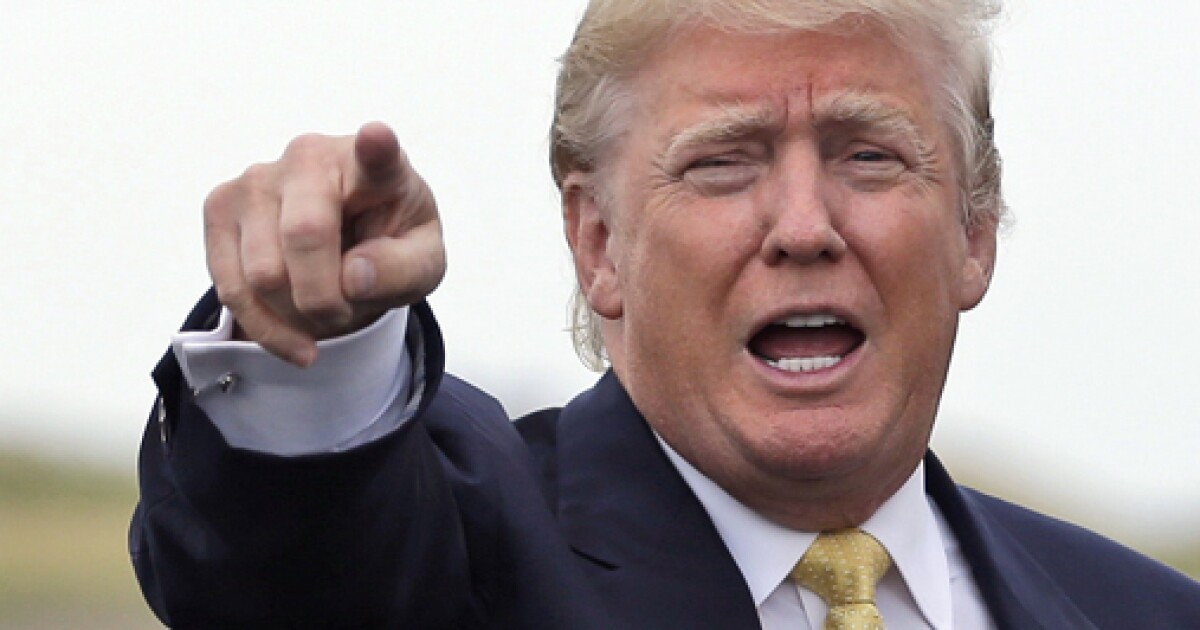

Former President Donald Trump’s defense team appears to be preparing a legal defense to the 37 counts of federal charges against him on two main fronts: that the underlying offense of possessing classified documents isn’t criminal, and that the Justice Department acted unethically in its pursuit of the case.
The Justice Department unsealed the indictment against Trump and his valet, Walt Nauta, on Friday after the former president announced the evening before that he had learned of his indictment.
HOW APPLE IS HELPING BRING LIONEL MESSI TO THE US
Prosecutors said they had evidence that Trump concealed classified records from federal officials and, on at least two occasions captured in audio recordings, showed sensitive records to visitors at his Mar-a-Lago home.
Trump said in a video statement on Friday that the charges represent an effort by the Biden administration to take out President Joe Biden’s most likely opponent.
“It’s election interference at the highest level,” Trump said.
Jim Trusty, one of Trump’s lawyers until a shake-up Friday morning, echoed the same sentiment in multiple interviews Thursday and Friday.
“[Trump] knows that the whole process, starting with the archivists, was a corrupt and politicized one,” Trusty said in an interview with CNN.
“The DOJ has leaked stuff every day of the week on this case,” he added.
In another interview on ABC, Trusty accused the Biden administration of seeking to turn a “regular dispute about documents in a former president’s home” into an excuse to entrap Trump on obstruction and false statement charges, both of which he is facing.
Trusty argued the statute governing the handling of presidential materials isn’t criminal in nature.
It was a version of an argument that Trump’s defenders made frequently after the FBI raided Trump’s home in August, but which has been made far more complicated by the details of the indictment.
Trump and his allies had claimed the former president declassified the materials he declined to return to the National Archives after leaving office, and therefore had broken no laws when his attorneys affirmed that all classified materials had been returned.
The Justice Department said in its charging document that investigators had obtained an audio recording of Trump showing a classified document to a writer and a publisher.
In the recorded conversation from July 2021, Trump acknowledged that “as president, I could have declassified it” and that “now, I can’t.”
Trump said weeks later, in another recorded conversation obtained by investigators, that he had a classified map of a military operation in the room. Trump warned the person “not [to] get too close” to the sensitive document because it was so sensitive.
Trump’s legal team appears poised to pivot away from the argument that Trump had, shortly before leaving office, declassified the materials he did not return to the government. Instead, they appear more likely to draw comparisons to the case of Hillary Clinton, who knowingly housed classified material on a private server she’d constructed in her home.
As secretary of state, she had no authority to declassify the emails in her house; instead, her team successfully argued she did not know the sensitive information on her server was classified at the time.
Vice President Mike Pence, who also admitted to taking a classified document home unintentionally, has been told he will not face charges over the matter. Biden housed classified materials at his private home and office and did not hand over all the documents to the investigators the first time his lawyers searched for them.
The defense is likely to use those other cases to lay the foundation for the second part of their argument: that the Justice Department used overly aggressive tactics to pursue the documents in his possession relative to other politicians who had sensitive materials in their homes.
Trusty leveled a particularly pointed accusation at the Justice Department in his public appearances this week.
He accused Jay Bratt, a top Justice Department official on the case, of extorting the lawyer for Nauta, the valet, by implying his career prospects could be imperiled if he did not convince Nauta to cooperate with prosecutors.
Stanley Woodward, the attorney, said in sworn testimony that Bratt brought up an application Woodward had filed to be a judge in Washington, D.C., and implied, according to Woodward, that the fate of his application rested on whether Nauta played ball with prosecutors.
CLICK HERE TO READ MORE FROM THE WASHINGTON EXAMINER
More broadly, Trump’s lawyers have said the Justice Department moved ahead with the raid on Trump’s home too quickly while Biden, months later, was afforded the opportunity to have his own lawyers search his properties for classified information and were never forced to sign an affidavit swearing all classified materials had been returned, as Trump’s attorneys were forced to do.
Trump announced the hiring of new defense attorneys on Friday as he prepares to appear in court Tuesday on the charges.





